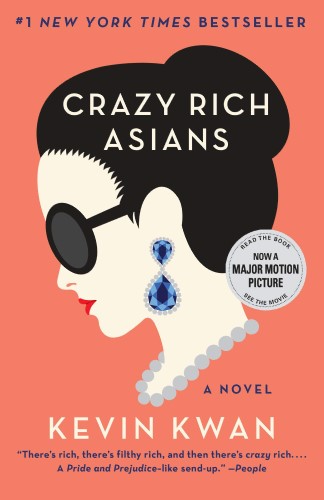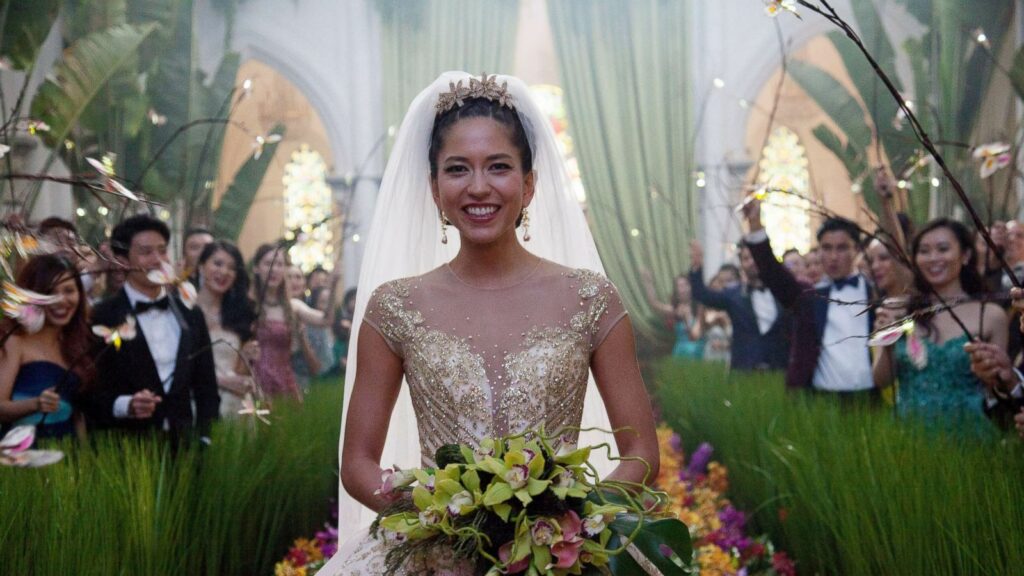
Crazy Rich Asians
Flat, undeveloped characters, telling instead of showing, and a lackluster plot all contribute to a novel that just isn't working.
I saw the movie, and I thought the book should be pretty entertaining, right? The premise, after all, is intriguing – an American woman finds herself enthralled in a world of crazy rich Singaporeans and has to come to terms with how much they all hate her. It’s the classic fish-out-of-water tale with a unique Asian twist. While it doesn’t sound like an epic, life-changing story, it should at least be a pageturner.
Wow, was I wrong.
If Only They Could Afford Personalities

Crazy Rich Asians is soooo dry and boring. The characters are flat, undeveloped words on paper. Seriously, you could take someone’s inner thoughts or dialogue and switch up the names, and I wouldn’t even be able to tell. Everyone has the same, blase personality and motivations.
What’s more, there’s too many of them. The plot is all over the place, randomly following members of this huge extended family for a sentence or paragraph, then jumping over to someone else. It’s always a major warning sign when a book starts with a family tree, so I guess I should have been prepared.
The problem with this is we never get to really learn about everyone. Sure, we hear about what they’re wearing or how much they think their “tiny” apartments suck or how they’re jealous of someone else’s jewels, but is there anything more to them? Not really.
You might be thinking – well, they’re all rich! That’s how rich people are! They don’t have personalities! All they care about is their riches! And yes, maybe that is true to an extent (but also a huge generalization).
But what about Rachel, the outsider who is completely new to this lifestyle? She should definitely feel like a separate person in this sea of Mary Sues. Unfortunately, she is as lifeless as the rest. She simply doesn’t act realistically in any situation. She’s just kind of there, going with the flow, without really exuding any traits other than “I don’t fit in!”.
They Must Earn a Penny for Their Thoughts
The other major issue I have is all of the showing instead of telling. Seriously, we hear every thought going through someone’s head, even if they aren’t the main character in the chapter.
Do we really need that? Can’t we determine on our own that Rachel is feeling overwhelmed, or Astrid is feeling bad? Their dialogue and actions lay enough clues down; we don’t need it to be spelled out at every turn.
This is especially obnoxious when it happens during POV chapters. You’d think naming a chapter after a character would signify you’ll be seeing that chapter from their head, right? Nope. This book thinks it’s OK to just switch POV every time another person speaks. It was so juvenile that I often forgot I was reading an adult book.
Don’t worry though, because I was quickly reminded that this isn’t some cruddy young adult fiction after reading lines like:
“Bernard sat in the diamond-shaped Jacuzzi on the uppermost deck while a half-Portuguese girl tried to swallow both of his testicles under the bubbly water jets.”
In case you were wondering, yes, that’s as out-of-nowhere as it seems.
But the Plot Was Good, Right?

All of the above things MIGHT be ok if the plot were robust and interesting. I might even give this Crazy Rich Asians book review three stars. But… nothing really happens. Rachel and Nick journey to Singapore, then we spend most of the rest of the book reading overly lush descriptions of designer clothes, fancy hotel lobbies, and the posh wedding ceremony.
This was fascinating at first, but it quickly became redundant. We GET it – there are sparkle and jewels and flowers and gold covering every square centimeter of Singapore. Please stop. This book is over 500 pages, and it really could have all been condensed to around 200.
Overall Conclusions
I guess I’m just not really sure how this became such a popular book. I suppose people were attracted to the lush descriptions of richness and the unique perspective of Asian culture, which are definitely the book’s strong points. However, they are not good enough to help the book overcome its many weaknesses. Flat, undeveloped characters, telling instead of showing, and a lackluster plot all contribute to a novel that just isn’t working.
